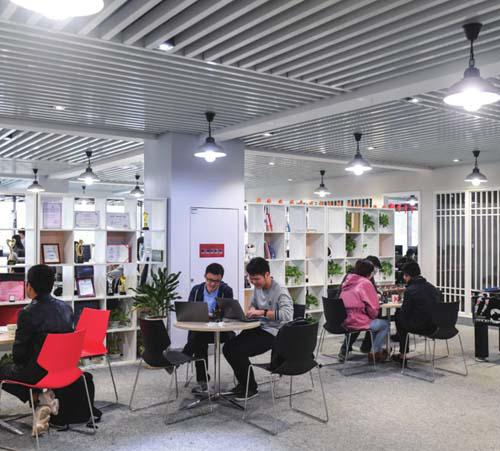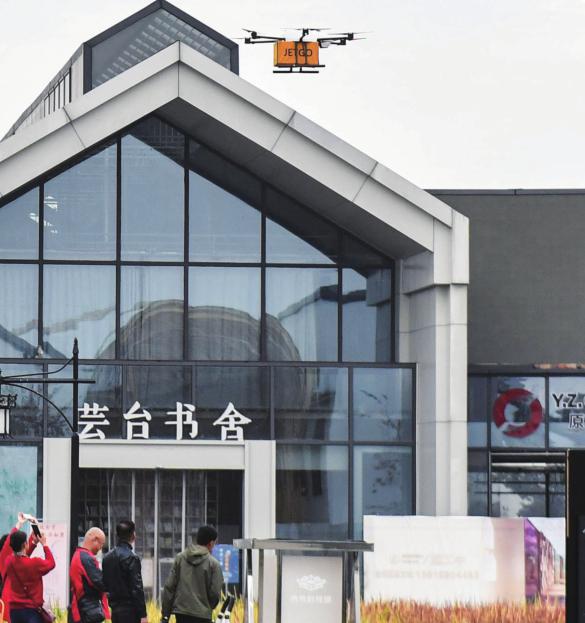DREAM TOWN
2018-12-17

Like many other tech entrepreneurs in Hangzhou, Li Muren started his career at Alibaba, an Internet giant based in the city. A year later, the 20-something resigned and created his own Internet technology firm at a rented office on Entrepreneurship Avenue in Dream Town—an industrial park built to accommodate the local tech boom.
Dream Town, which opened in March 2015, is located in west Hangzhou as part of the Future Science City, close to the headquarters of Alibaba. According to official data, the total number of registered enterprises has reached 4,037. Of these companies, 166 have attracted investment, and three have been listed in the National Equities Exchange and Quotations, which supplements the Shanghai and Shenzhen stock exchanges to serve small and medium-sized enterprises. Revenues in 2017 reached 3.92 billion yuan($564 million).
Within two years, Lis employees increased from three to more than 30.“Dream Town offers a business-friendly environment and excellent policies for startup companies,” he said. “There is an annual 20,000-yuan ($2,800) coupon for startup companies committed to innovation and entrepreneurship, which can be used to purchase various services.”
The vast majority of companies in Dream Town are startups like Lis, many of which chose to enter the town through incubators. Liangcang Accelerator is one such example. Wang Feng, the companys chief operating officer, said Liangcang Accelerator has 13 incubator sites in total. There are a large number of startups in need of such incubators for additional services for their businesses.
“Some of them rent only two or three desks for work. Some occupy an entire floor,” Wang said. The largest enterprise in one of Liangcangs incubators in Dream Town, DTWAVE, is a big data company established in June 2016. The number of its employees has since soared from six to 300. “Most of the companies are engaged in the development of big data, artificial intelligence and smart hardware,” Wang said.
There are 57 incubators in Dream Town. Those who graduate from these incubators often choose to settle down in the Future Science City to benefit from a variety of preferential policies. The most direct advantage is a 50-percent discount or exemption on rent based on a comprehensive assessment of the companys performance.

